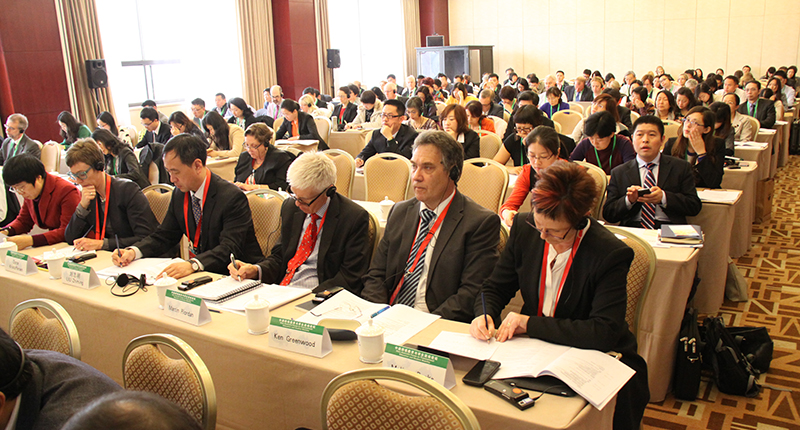(Information current as at 19 May 2015)
Education institutions and government officials gathered in Beijing on 27 & 28 March 2015 for the Sino-Australia Forum on Transnational Education and Student Mobility. The forum gave Australian participants the chance to hear at first-hand about policy developments from Chinese national and provincial education officials.
More than 150 Chinese and Australian education officials, deputy vice-chancellors, deans and other senior institutional representatives attended the forum, funded by the Australian Government Department of Education and Training and supported by the Chinese Ministry of Education.
The forum built on more than twenty years of successful cooperation in Sino-Australia transnational education programs, with Australian education institutions cooperating with their Chinese partners in nearly 350 active joint institutions and programs. The forum looked to deepen engagement in transnational education, helping Chinese and Australian institutions to work together strategically to support capacity building and development in both countries.
The forum was designed to address issues with transnational education policy and practice raised by a growing number of Australian providers, and discussed in several recent articles in the Australian media.
Participants heard from nearly 30 experts in the field of transnational education, quality assurance and student mobility. Senior officials from the respective provincial and national governments spoke, as did commissioners from the Tertiary Education Quality and Standards Agency (TEQSA) and the Australian Skills Quality Authority (ASQA), Australia’s two independent national regulators.
Chinese national and provincial education officials provided an update on transnational education developments in China, noting in particular that the structure of the Chinese economy had changed significantly from a decade earlier, and that new skills and disciplines were now needed (a shift from rapid growth to sustainable growth – the “new normal”). Australian providers were encouraged to work with prospective partners to develop a new range of programs that meet the changing skills and professional needs of the Chinese economy.
Director Yan from the Ministry of Education proposed the development of a high-level China Australia consultative mechanism for effective regular communication to ensure quality and regulation. The Department of Education and Training will have further discussions with the Ministry of Education about this proposal.
The education and research team in the Australian Embassy used the forum to provide Australian speakers with the opportunity to highlight best practice in transnational education delivery in China. It also enabled speakers to combat some misperceptions and concerns about Australian education providers operating offshore. The presence of commissioners from TEQSA and ASQA also helped to promote the strengths of Australia’s quality and regulation systems to Chinese officials and education representatives.
The second day of the forum focused on student mobility, looking at policies and practical solutions to supporting greater two-way flows of students between China and Australia. The New Colombo Plan Secretariat presented on the New Colombo Plan and its implementation in China.
China is already the second most popular destination for Australian students studying overseas, and with the implementation of the New Colombo Plan in China this year, China is expected to become the most popular destination for Australian students in the near future.
Participants of this highly successful event noted that the forum gave them a better understanding of some of the Ministry of Education’s thinking around articulation and joint programs.
The education and research team in the Australian Embassy will be looking for ways to further build on this understanding into the future and in the lead up the next joint working group meeting of senior officials from Australia and China.
Keynote speakers
